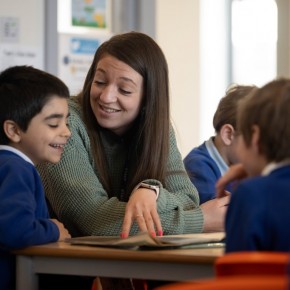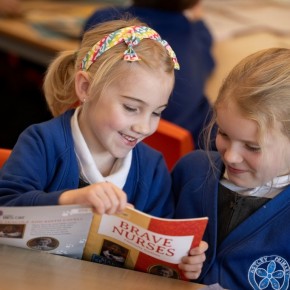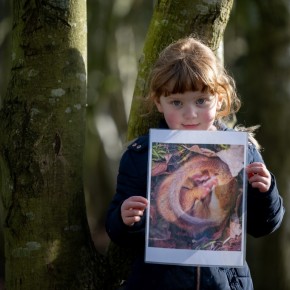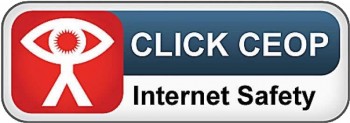Meet... The Pastoral Support Team
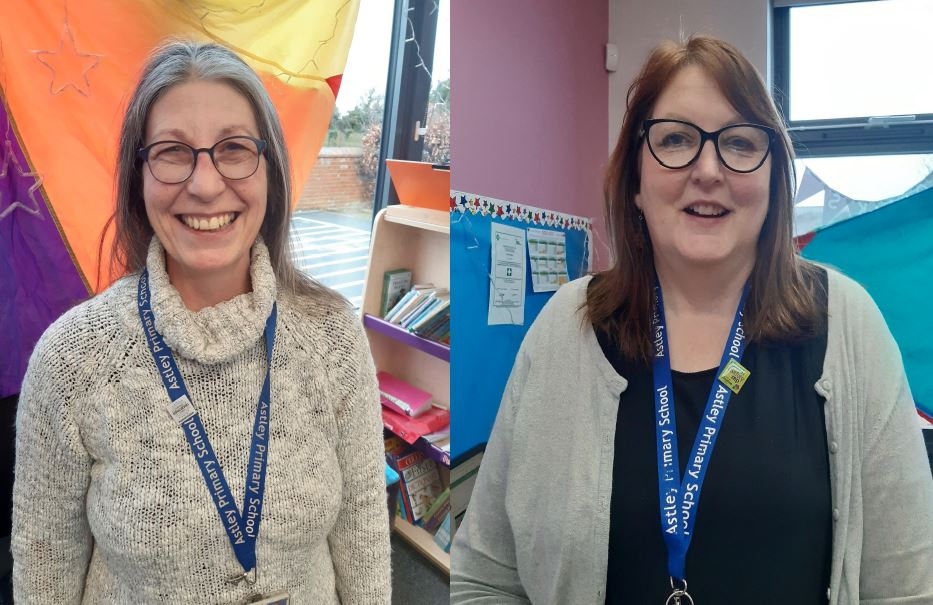
In turbulent times we have become more conscious of our sense of well-being as we try to understand what well-being might really mean to us as individuals or to our families. How do we define well-being, something which is so personal and individual and can mean so many different things? And how do we look to achieve it?
Having a sense of well-being may mean we feel comfortable, healthy and happy, but it may also include feeling safe, secure and protected or that we feel we have choice, success, vitality and personal fulfilment. Our well-being relies on our mental, emotional and physical state. Mental well- being can be thought of as how well we process and understand information, experiences, thoughts and feelings and how we cope with the ups and downs of life. Emotional well-being involves the ability to manage and express the feelings that arise from what we have learned and experienced. Physical well-being should mean more to us than simply feeling the absence of illness or infirmity.
The intensity of Lockdown has meant that the dynamics of family life has come in to sharp focus, as we may find ourselves living, working and educating under one roof. We may have become more conscious of how this impacts on our own and our children's well-being. It may make us ask how we can achieve a sense of protection, vitality and happiness with the uncertainty and insecurity of life at present or we may feel ill-equipped to ensure that our children not only survive, but can thrive through these challenging times.
Astley Primary School set up its newly created Pastoral Support Team (PST) in October of 2020 with the intention of sharing ideas, offering support, advice, practical tools and encouragement to children and their families. Pastoral support has existed at Astley in many forms prior to the creation of the new PST. Headteacher, Jen Goakes, explains that accessing pastoral support has always been top of Astley's agenda as part of an historic school ethos, to offer love and care and focus on children's well-being, 'but now more than ever, we feel the need to implement a whole school, rounded approach.' Jen stresses that the PST should not be seen a separate entity to the running of Astley and that its key functions are interwoven within the school's culture, to 'provide support, advice and wellbeing for all families in order for Astley pupils to thrive and become happy, safe and healthy young people,' as an extension of the 'ACE' curriculum*.
The Pastoral Support Team comprises of Claire Riches and Claire Sutton and is overseen by Miss Coleman, Astley's Special Educational Needs Coordinator (SENDCo). Claire Sutton sees the role of PST as one which aims, 'to support the teachers to support the children and parents.' Claire Riches has a degree in Childhood and Youth Studies and is qualified in the Theory and Practice of Nurture Groups. Both Claire Sutton and Claire Riches have training in Attachment, Bereavement, Therapeutic Parenting, Art Therapy, Sleep, Self-harm and Anxiety and also have the experience that comes with being parents.
Having team members working together means that the PST can also offer each other support, off-load, share ideas and concerns, 'we often think along the same lines but have particular strengths and interests.' They both agree that the ability to connect with pupils is often down to personality. Where one team member might find resistance or struggle to connect, the other will find a route in.
Astley's Nurture Group evolved this academic year into Breakfast Nurture, in recognition that daily contact was more beneficial to the children. They have the capacity for up to 15 pupils who have been referred to them by staff, for a range of reasons, for pastoral help and support.
Structured play before registration gives way to a communal breakfast. Eating is seen as a nurturing, social event, where everyone is equal. Children learn to be respectful, take turns, talk,
listen and take personal responsibility. They explain that the atmosphere this creates gives pupils the opportunity to open up, 'sometimes children just need someone to talk to.'
The range of things which worry children can be quite diverse. All the questions the children ask in Breakfast Nurture are answered and discussed appropriately and the team are able to pick up on issues for individuals or address other problems that may arise within a group context. The opportunity for children to off-load before phonics and comprehension work begins means that pupils are settled and in the right frame of mind to integrate back in to their class setting.
In addition to Breakfast Nurture, the PST will see approximately 30 pupils referred to them during the week for 15-20 minutes one-to-one, where they find their input impacts over time to empower children. They will offer activities which encourage pupils to communicate and express anxieties. They may address these anxieties by playing games to help learn resilience or by creating memory jars to help with grief. Children are always encouraged to tell their parents that they are speaking to Nurture and it is never a secret.
When asked how they felt the first Lockdown in March affected Astley pupils, the PST explain that the prolonged good weather and the novelty factor created a light-hearted atmosphere for those pupils who were attending school. The Astley Primary School Twitter feed came in to its own in terms of keeping the school community connected. There was less expectation on parents with home-learning and a greater sense of optimism as everyone pulled together, with the assumption that measures would be short term and that the world would somehow sort itself out.
The third National Lockdown sees much higher expectation on parents to implement home- learning. For single parent families and larger families helping children across multiple age groups this can be challenging. Being apart from friends and extended family support may have caused some families to look inwards to what they alone can provide through Lockdown's enforced independence. The technical challenges of working online have created the need for parents to learn new skills swiftly to facilitate home-learning. Parents working from home whilst coordinating home-learning creates further demands. The PST explain that children generally don't want to be taught by their parents at home and they have noted more resistance from children to learn in this way. Sometimes parents may be dealing with feelings they still carry towards their own experience of education. Add to this the winter weather and the cumulative exhaustion, parents are under considerable pressure.
Children deal with stress differently to adults, often complaining of physical symptoms of stress and anxiety, such as the familiar, 'Monday tummy.' Worrying that you are not good enough or that you will fail is common. Separation anxiety has also increased due to Lockdown and parents may be unaware of passing their anxieties on to children, when often what is needed is reassurance, understanding and the ability to build resilience. Those pupils who have attended Breakfast Nurture have coped well, as they have begun to develop the emotional literacy to express their anxieties.
The PST have noticed common problems for Astley's children during the third and most recent Lockdown, such as issues with sleep, feeling sad, angry or expressing aggressive behaviour and verbal abuse. Less access to outdoor play and inclement weather means that parents have concerns for children's weight or that they have developed obsessive or compulsive behaviour. A shift in dynamics for separated families can cause feelings of loneliness and distress, as can isolation from Grandparents and extended family support. In addition to this, children can overhear things that adults talk about and struggle to make sense of it.
During the current Lockdown all Astley staff, with the help of the PST, have been phoning families regularly and are delighted that children have been happy to speak to them. Listening, allowing families to off-load, offering advice and sign-posting to help are all important. Offering remote support does present its challenges, as so much of communication is non-verbal. Not being able to see children face-to-face means that there is a danger that things can be missed, so regular calls do much to compensate and build strong relationships of trust and open communication with both children and parents.
The PST explains that school is about more than academic learning. Children need to develop conversational and communication skills. Friendship squabbles occur frequently because, 'much of school is about learning how to get along with people and to get along with people that you may not like, or may not like you.' Being separated from friends in Lockdown has made friendship issues greater, as when pupils return to school they attempt to re-establish secure relationships. The intensity of restrictions, the necessity of smaller group bubbles and not being able to play with pupils across all age groups means that children may experience friction where they have out-grown their friendships quicker, but are unable to forge new ones.
Engaging parents through the new PST Twitter feed @pst_astley is a recent development which builds on the fantastic success and strong following of the Astley Primary School Twitter page @astley_primary. The PST have already developed their own good following which is generating positive feedback. The team can interact with families in a way they haven't been able to before, engage parents who are not coming in and out of the school playground regularly and share articles and useful websites with families.
Miss Coleman explains how research has shown that for a child to thrive they need to feel emotionally safe and secure and Astley's Pastoral Support Team proves invaluable in getting this element right for them. By supporting children to feel confident, emotionally secure and happy, they then have the ability to focus on their learning, which impacts positively on progress and attainment. The PST gives Astley the scope to reach more families and develop its sense of community further, where knowledge and understanding can be shared to benefit all.
Astley's Governors spoke to the Pastoral Support Team in a recent Deep Dive meeting which looked at its progression and reach, noting how many children have become anxious in the past year and need extra support when they feel under stress. They anticipate that the work of PST will impact more, if not all Astley pupils. Families and carers have access to the Pastoral Support Team and their useful links to mental health support via Twitter. Children can engage with well-being exercises on the school remote learning platform 'DB Primary' which gives them the regular opportunity to switch focus. The hope is that this generation will become better armed to reach their potential, whether this is by knowing how to ask for help, being mindful, or changing perspective.
Astley prides itself in caring for the whole child and the PST has a vital role in that responsibility. Whether pupils are in school or at home, the Pastoral Support Team is working hard to look after the particular needs of Astley children whilst supporting teachers. Contact with parents is an essential part of their work and parents have come to appreciate their support, 'It's surprising what a chat can do.'
When asked what they both find helpful to maintain a positive outlook and a sense of well- being, Claire Sutton says that she likes creating things and the sense of purpose and accomplishment this brings, so she sews, weaves, spins, knits and crochets. Claire Riches says that dog-walking or going for a run, whatever the weather, really helps her to unwind and organise her thoughts at the beginning or the end of the day.
Both Claire Riches and Claire Sutton emphasise that what the Pastoral Support Team offers is part of an Astley team effort #teamAstley, #teamACE and works to compliment the support offered by all staff across the school. Jen Goakes agrees that communication is absolutely key, 'staff communicate on a very regular basis in order to get the best for our families. I am really proud to be able to offer such a fantastic resource to our families, and it is the experience, knowledge, empathy and humanity of Claire and Claire that is making it such a success.'
The Pastoral Support Team welcomes comments, messages and chat through their Twitter page @pst_astley. Families who would appreciate a private conversation with the Pastoral Support Team, please contact the school office via phone or email and staff will be happy to help you connect.
©Carrie Patten 2021
* ACE 'Astley Curriculum Experience'
'...inspirational, challenging, inclusive and enabling children to become kind and respectful lifelong learners who have CHOICE.'
With thanks for contributions from:-
Jen Goakes Julie Coleman Claire Sutton Claire Riches Claire Newstead Carolyn Sexton Karen Cornish Graham Pickhaver
< Back to all news stories

